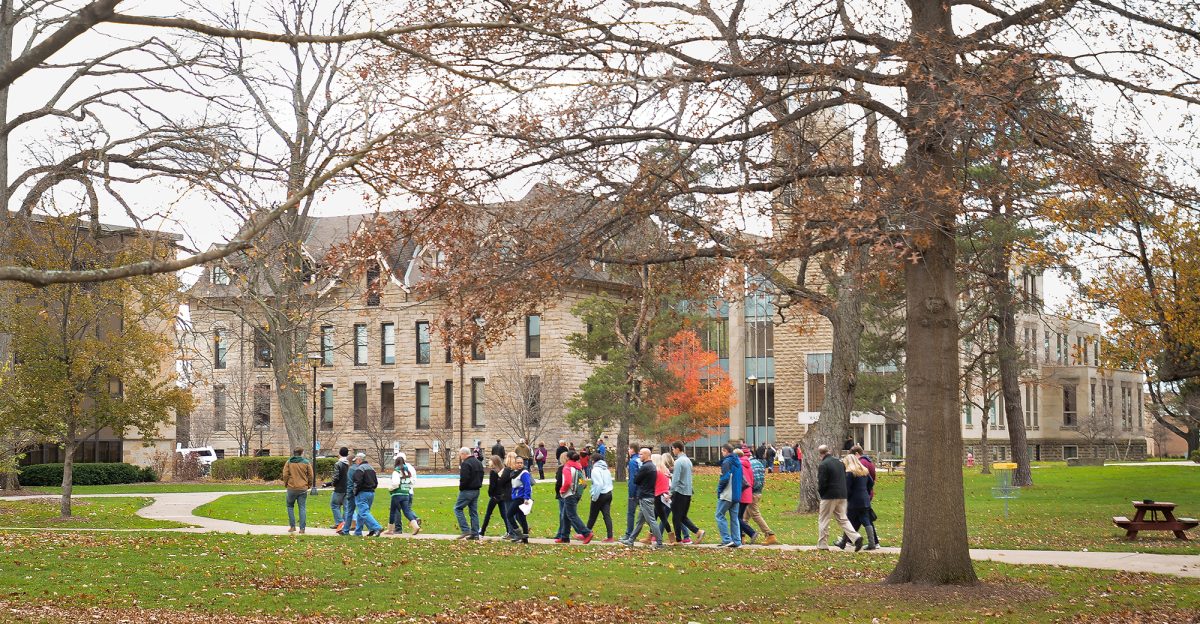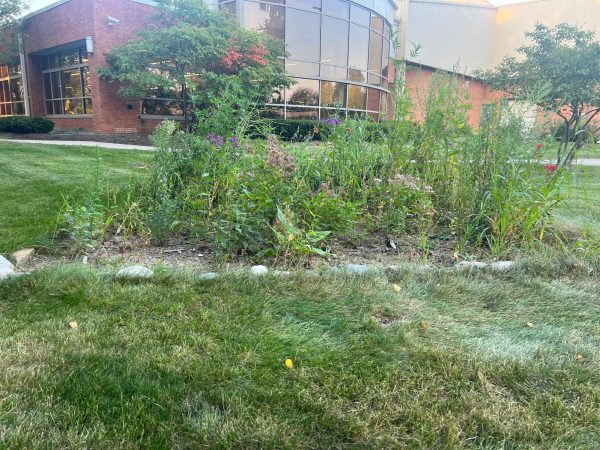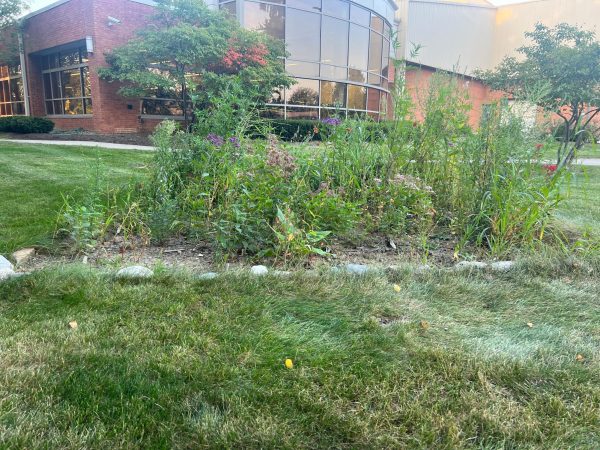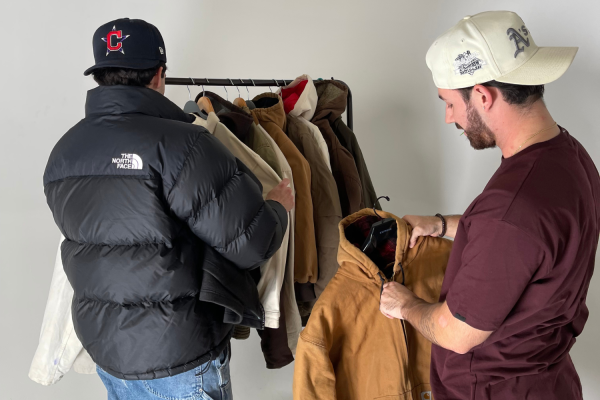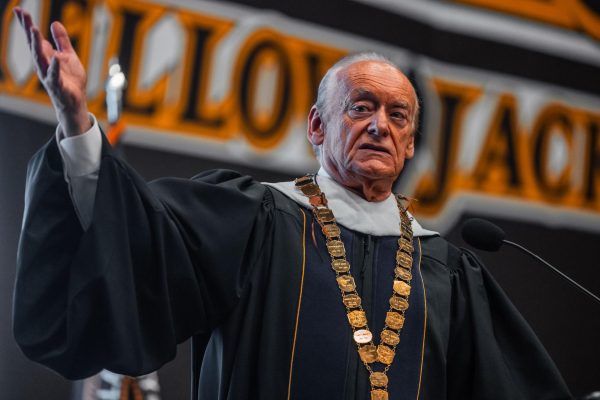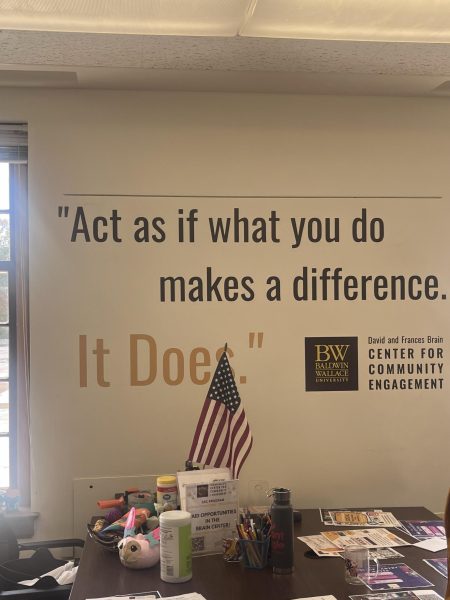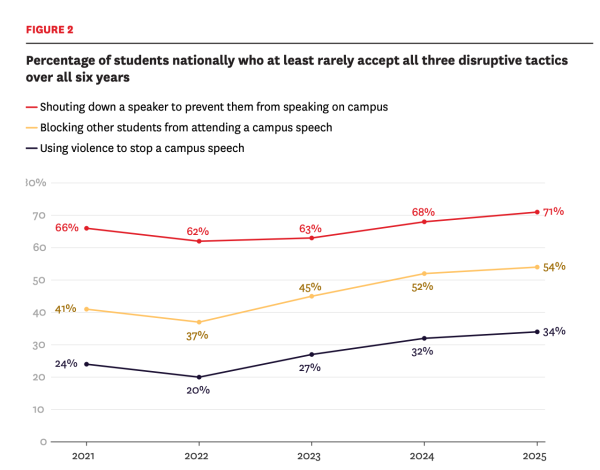University earns sustainability certifications as students stress importance of further action
BW has earned sustainability certifications for certain buildings. The president of a student environmental group wants to do even more.
Baldwin Wallace University this fall announced recent strides to improve sustainability on campus, and there are many opportunities and tips for students to become more involved in the sustainable efforts around campus.
According to an R.A. training presentation on sustainability which was shared with The Exponent by Robin Gagnow, residence life and housing operations manager, the University purchased environment-friendly facility upgrades ahead of the 2022 academic year.
New sustainability advances include the Bigbelly solar intelligent waste and recycling collection system. With location near the union and Welcome Center and in Kamm Hall, this system is solar powered and communicates when its compacted waste needs to be emptied.
The university also has Max-R recycling bins, which are made from plastic bottles. These are located in Ernsthausen Hall, Davidson Commons and R. Amelia Harding House for Sustainable Living.
For their efforts so far, Baldwin Wallace has earned two Leed certifications, which are given to recognize the sustainable practices and strategies in buildings. Baldwin Wallace received the “gold” Leed for the residence hall R. Amelia Harding House for Sustainable Living and the “silver” Leed for the Durst Welcome Center.
The S.T.A.R.S. silver rating, which stands for Sustainability Tracking, Assessment and Rating System, was also awarded to BW by the Association for Advancement of Sustainability in Higher Education.
Gagnow said that Baldwin Wallace’s sustainability goal is to reduce their carbon footprint and to have students leave with the knowledge to better care for the environment.
There are contributions that individual students can make as well. Students can become more involved with sustainability around campus by recycling and reducing the amount of food waste by being mindful of what they are buying and taking from dining halls, Gagnow said.
According to the United States Environmental Protection Agency, food containers are responsible for nearly 45 percent of the materials that end up in landfills.
Gagnow said can also help in the efforts to be more sustainable by watching what they put into the recycling bins, because food waste can contaminate what is in the bin.
Changes in the dining halls have also contributed to the University’s sustainability efforts. Claire Fischer, a sophomore graphic designer and the president of Students for Environmental Action, said that she worked with Dining Services to hang signs in the union telling students to leave their leftover food on their plate to be composted.
Fischer went on to say that Baldwin Wallace can improve their sustainability by offering reusable plastic cups. For years prior to the Covid-19 pandemic, reusable cups were used in both the union and Lang dining halls.
“Students have the option to bring in reusable cups, which I often do, but when students are on the run, they may not have a reusable cup to use,” Fischer said.
Fischer said that S.E.A.’s aim is to have the University community become aware of environmental problems and promote sustainability. Their goals go beyond awareness and promotion, focusing on becoming more active in the efforts to be sustainable.
“Our sustainability goals for this year include working with the [University] sustainability committee to learn new practices we can promote to students, as well as restarting the student tended natural garden and making its presence known,” Fischer said.
The Exponent is looking for financial contributions to support our staff and our newsroom in producing high-quality, well-reported and accurate journalism. Thank you for taking the time to consider supporting our student journalists.





